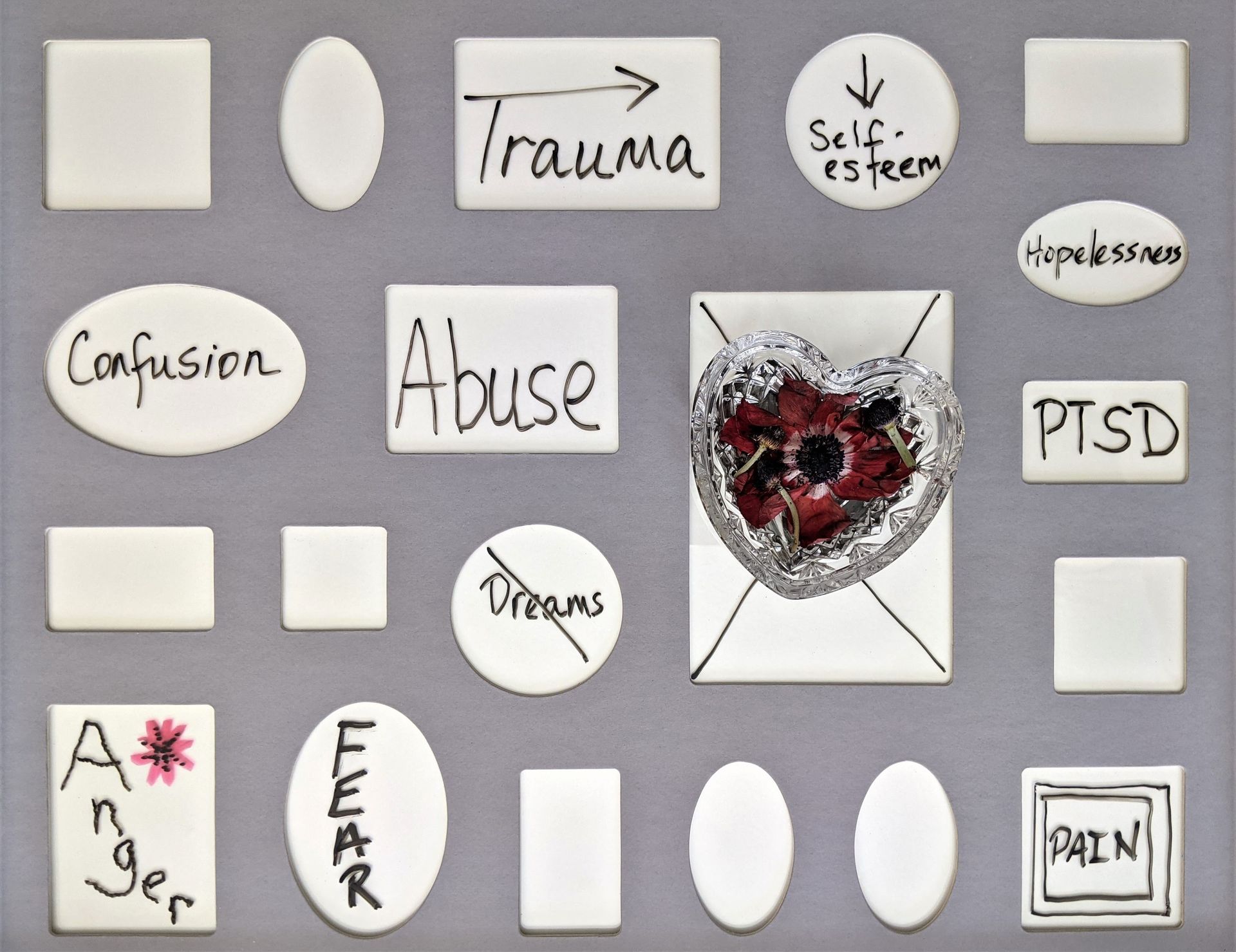
Exploring Trauma
Trauma can look different based on life experiences and attitudes. Some have gone through a lot and come out the other side resilient. Others continue to struggle. Both situations are normal. Everyone deals with their pain differently, and how we deal with pain can sometimes harm us further. Since no two people are alike, finding healthy ways to cope can be challenging.
Identifying Distress
Confront your problems. When you start to feel anxious, take note of why. Your first reaction is to stop the negative emotions, such as bottling them up or distracting yourself. Be
in the moment. Identify what caused the feeling.

Don’t know what I mean by “be in the moment?” Take flying in an airplane. It’s a common fear. About 40% of Americans have some level of anxiety associated with flying. The reasons why people are scared vary. Some may worry that the plane will crash while they’re on it. Others feel claustrophobic. Some are afraid of heights. Why you’re scared matters; it’s the first step in managing trauma. Although the fear of flying is not necessarily classified as traumatic, tackling an existing trepidation can give you tools to identify minor discomforts.
Avoidance
Many of our first reactions when something uncomfortable crops up is to do everything we can to make the feeling disappear. What makes dealing with mental health issues so tricky is that an immediate coping mechanism, such as bottling or distraction, seems to work. However, this type of self-management is not practical. Short-term coping skills might seem compelling, especially if we go months or even years without being overly burdened by our trauma. However eventually, we find other ways to deal with our issues, whether with substances or other risky behavior.
Separating healthy coping skills from unhealthy ones is difficult. For example, discussing your problems with someone else instead of keeping them to yourself can be beneficial. However, this becomes unhealthy when we can’t stop thinking about or discussing the same problem. At this point, talking it out is not working. The person we confide in may become overwhelmed and, if they are someone who cares about us, feel defeated since they can’t provide us with relief. What works for one person doesn’t always work for the next. Find long-term coping skills that work for you. Therapists and mental health professionals provide their clients with healthy self-management skills. They work with each client individually to determine the best action plan.
Trauma is tough to avoid in this day and age, whether it is a veteran returning from an active warzone or somebody who has endured domestic violence. However, we understand that it’s not that black and white. Our goal is to give you some tools to identify if you or somebody you love who is experiencing the effects of trauma.
Veterans Covert
Protection Group
contact@vcpg.us
San Francisco Bay Area
(925) 583-5223
Toll-Free
Montana Office
(406) 813-3236
CA PPO 120668
MT PPO PSP-EPI-LIC-41088
